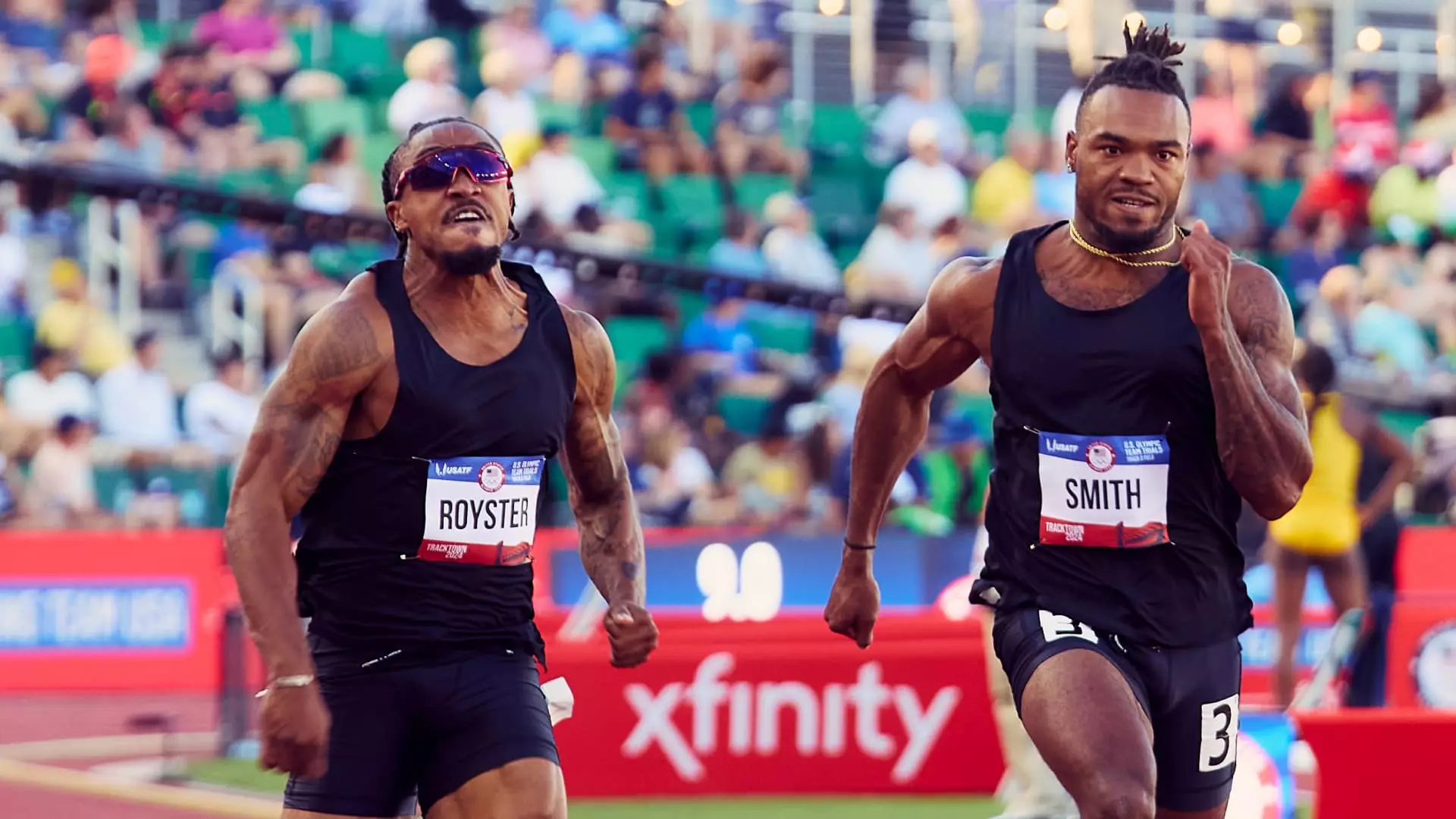The U.S. Track & Field Olympic Trials this year have seen a significant presence of unsponsored athletes, challenging the traditional sponsorship model for professional athletes. A total of 35 athletes are being supported by Bandit Running’s Unsponsored Project, a unique initiative aimed at providing opportunities for up-and-coming competitors in the sport. Instead of having to purchase apparel from major brands that would essentially promote these companies for free, unsponsored athletes are now being offered all-black, logo-less gear by Bandit Running. This alternative approach includes short-term endorsement deals, giving athletes a platform to showcase their talents without the burden of seeking traditional sponsorships.
The founder of Bandit Running, Tim West, expressed the company’s vision of a new sponsorship model where brands allocate a portion of their budget to support amateur and sub-elite athletes, contributing to the growth of the sport. The Unsponsored Project not only provides athletes with unbranded apparel and financial assistance but also creates a pathway for potential long-term sponsorships. The deals offered by Bandit Running come with a release clause, allowing athletes to transition to traditional sponsorships if such opportunities arise during the trials. This innovative approach highlights the investment that unsponsored athletes are making in themselves and presents a unique opportunity for brands to step in and support these individuals.
One of the athletes benefiting from the Unsponsored Project is Courtney Okolo, a 400-meter runner who previously had a sponsorship deal with Nike. Despite her past success and experience with a major brand, Okolo acknowledges the challenges of competing without a sponsorship. The financial burden associated with training, travel, and competition expenses can be overwhelming for athletes, particularly those who do not have sponsorship agreements. By participating in the Unsponsored Project, Okolo feels supported and empowered, knowing that she has a network backing her journey to the trials. The initiative not only eases the financial strain on athletes like Okolo but also sheds light on the resilience and dedication required to pursue Olympic dreams.
Brandee Johnson, a 26-year-old unsponsored track athlete, exemplifies the determination and commitment of athletes striving to make their mark in the sport. Balancing two jobs and a side gig while dedicating hours to training, Johnson embodies the spirit of perseverance and resilience. Joining the Unsponsored Project has provided Johnson with a sense of reassurance and support, enabling her to focus on her athletic pursuits without being weighed down by financial concerns. The initiative not only serves as an alternative avenue for Johnson to achieve her Olympic dreams but also aligns her with a movement that is making a positive impact on the lives of athletes within the track and field community.
The emergence of unsponsored athletes at the U.S. Track & Field Olympic Trials signifies a shift in the traditional sponsorship landscape. With initiatives like the Unsponsored Project by Bandit Running, athletes are granted opportunities to showcase their talents, receive support, and pursue their Olympic aspirations. As we celebrate the resilience and dedication of these unsponsored athletes, it is clear that their journey is not just about competing on the track but also about reshaping the narrative of sponsorship in the world of professional sports.

